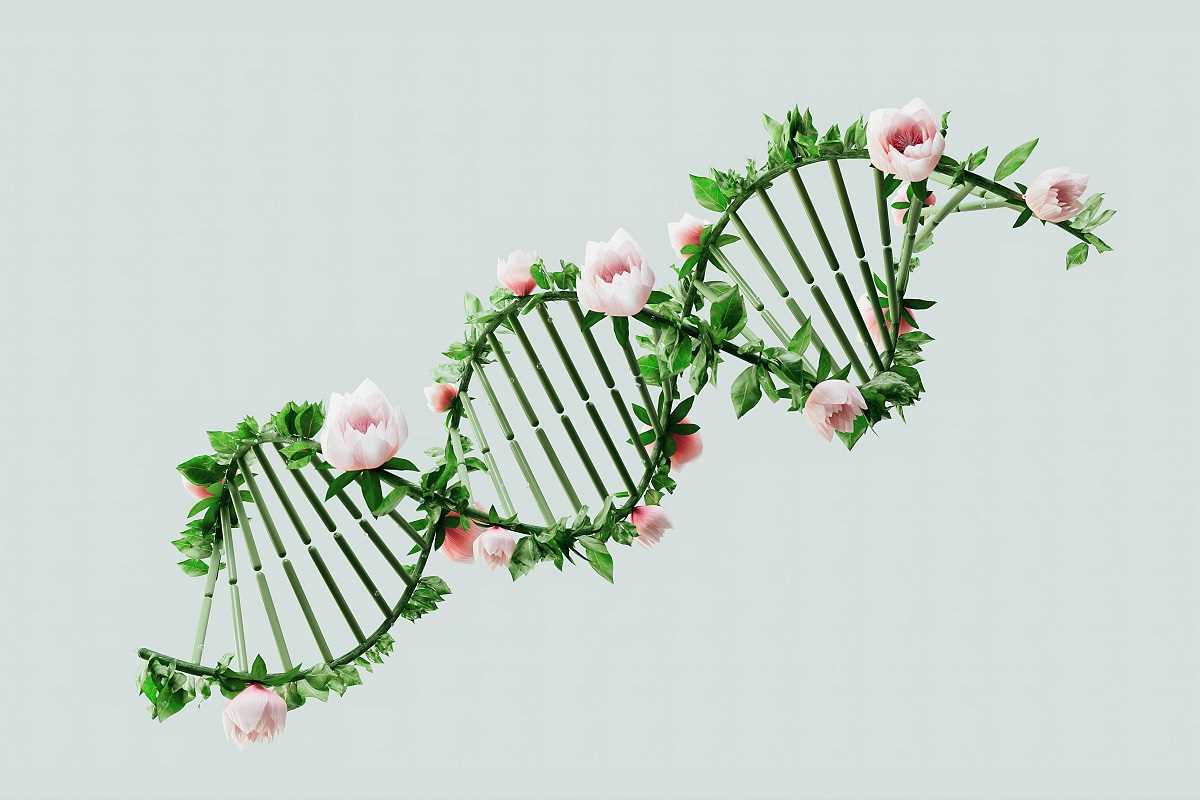Imagine having a personal blueprint that tells you exactly what to eat, how to exercise, and how your body will respond to both. No more guessing games, no more cookie-cutter diet plans—just a solution that’s uniquely you. Enter nutrigenomics, the science that combines genetics, nutrition, and fitness to create custom-tailored health strategies. Think of it as the ultimate cheat code for optimizing your health.
Intrigued? Let's explore nutrigenomics, how it can be used in daily life, and the steps you can take to unlock your body’s full potential.
What is Nutrigenomics?
Nutrigenomics is the study of how your genes interact with the foods you eat and the way you exercise. It’s part of the broader field of personalized nutrition, which focuses on designing diets and fitness regimens tailored to an individual’s genetic makeup.
Your DNA carries information about how your body processes nutrients, burns calories, and builds muscle. Nutrigenomics translates this information into actionable insights that can help you make smarter, more personalized choices about your diet and workouts.
For example, some people naturally metabolize caffeine more slowly than others, meaning that afternoon cup of coffee might disrupt their sleep. Or certain genetic variations may predispose individuals to higher cholesterol levels when eating saturated fats. With nutrigenomics, you won’t have to rely on generic advice—instead, you’ll know exactly what works for you.
Why Does Knowing Your Genetic Makeup Matter?
If you’ve ever wondered why your friend thrives on a vegan diet but you feel weak and irritable just thinking about it, or why your coworker sees amazing gym results doing the same exercises as you, the answer could lie in your genetic makeup.
Each of us has unique genetic traits that influence things like metabolic rate, fat storage, muscle fiber type, and even appetite. Understanding these traits through nutrigenomics can help you tailor your fitness and nutrition plans to your specific biology, making them more effective and sustainable.
Key Genetic Variations and Their Impact
Macronutrient Metabolism: Genes can determine how efficiently you process carbs, proteins, and fats. For example, some people may be less tolerant to carbs, leading to energy crashes after high-carb meals, while others may burn fats less effectively and benefit from a lower-fat diet.
- Exercise Response: Not everyone gets the same results from the exact same workout. Genes can influence whether you’re naturally geared for endurance activities (like running for miles) or strength-based exercises (like lifting heavy weights).
- Micronutrient Needs: Genetics can reveal whether you’re more likely to have vitamin deficiencies like vitamin D, folate, or iron, enabling you to adjust your diet or supplements accordingly.
- Food Sensitivities: Some genetic markers can indicate sensitivities to gluten or lactose. While these aren't full-blown allergies, they can affect digestion and energy levels, making it helpful to identify and manage triggers.
How to Get Started with Nutrigenomics
Curious about how you can actually use this cutting-edge science in your life? Here’s your step-by-step guide to getting started with nutrigenomics.
Step 1: Get a Genetic Test
The first step is to gather information about your genetic profile, and that means taking a DNA test. Thankfully, this process has become more accessible than ever, thanks to at-home testing kits.
Choose a Testing Company: Popular companies like 23andMe, AncestryDNA, DNAfit, or Genomelink offer genetic testing with varying focuses. While 23andMe provides general health and ancestry insights, others, like DNAfit, specialize in fitness and nutrition-related genetics.
Order Your Kit and Provide a Sample: Once you pick a service, you typically receive a testing kit in the mail. Most require a saliva sample, which you collect at home and mail back. It’s painless, simple, and only takes a few minutes to complete.
Receive Your Results: After processing your sample (which usually takes a few weeks), you’ll receive a detailed genetic report, often alongside an online portal to view your data.
Step 2: Interpret Your Results
Once you have your genetic report, it’s time to translate those numbers and scientific terms into actionable insights.
Review the Key Takeaways: Most reports will highlight areas like nutrient metabolism (e.g., how your body handles carbs and fats), exercise response, and micronutrient needs. Look for insights that align with your current lifestyle and goals. For example, your report might reveal that you have a genetic predisposition to store fat more readily when eating saturated fats, suggesting you benefit from a diet lower in things like butter and red meat.
Use Professional Guidance if Needed: The science can get complicated, which is why consulting with a dietitian, nutritionist, or fitness coach familiar with nutrigenomics can help you make sense of your results. Some testing companies even provide access to in-house experts who can walk you through your personalized recommendations.
Step 3: Apply the Insights
Now comes the fun part—turning those genetic insights into a customized plan that works for your body.
- Tailor Your Diet: Use your results to adjust your eating habits. For example, if you have a gene variation suggesting you metabolize carbs poorly, you might adopt a lower-carb, higher-protein diet. Or, if you have a higher need for vitamin D, you could add more salmon, eggs, and fortified foods to your meals (or consider supplements).
- Customize Your Exercise Routine: If your genes reveal that you're better built for power-based activities, focusing on strength training and explosive workouts like sprinting might give you better results. Conversely, if endurance is your thing, long runs, cycling, or swimming could be more effective.
- Track and Adjust: The beauty of nutrigenomics is that it’s a starting point—not a rigid rulebook. Incorporate the changes gradually, track how your body responds, and fine-tune your plan over time.
Nutrigenomics has the potential to shape the way we think about health, offering a roadmap to a diet and fitness plan that’s as unique as your DNA. With a DNA test and some guidance, you can uncover how your body processes nutrients, responds to exercise, and what it needs to perform at its best.
Of course, your genes are only part of the equation—lifestyle, environment, and habits also play big roles in health outcomes. But by blending the science of nutrigenomics with your personal goals, you can develop a plan that isn’t just effective—it’s sustainable and, more importantly, built for you.
Why waste time on trial-and-error diets when your genes already have the answers? It’s time to take your first step toward personalized health!
 (Image via
(Image via





.jpg)